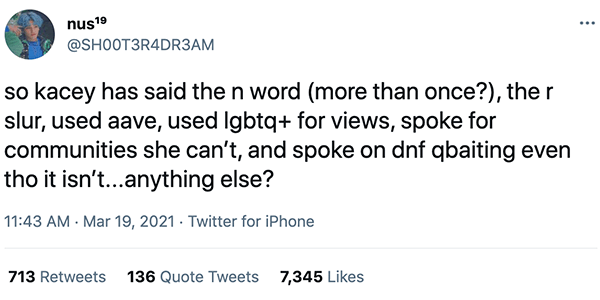AAVE
African-American Vernacular English
Example
I'm not OK with Brad hijacking AAVE to sound cooler
Wow, chill out, I didn't know you were part of the woke police

Related Slang
| BIPOC | Black, Indigenous, People of Color |
| POC | Person of color |
| BLM | Black Lives Matter |
| Woke | Aware of social issues |
| Get woke | Become aware of social issues |
| BHM | Black History Month |
| WASP | White Anglo-Saxon Protestant |
 Can you survive our Dungeons & Dragons slang quiz?
Can you survive our Dungeons & Dragons slang quiz?
AAVE is "African-American Vernacular English," which is American English spoken with vocabulary, accent, and grammatical traits unique to African-Americans. As cultural awareness has progressed, AAVE has become a hot-button issue, highlighting the appropriation of the dialect as slang by non-Black communities to sound cooler.
Where does AAVE come from?
There is no clear consensus among linguistic professionals as to where AAVE originated. Some believe it traces back to English-based creole language variants from the 17th century. Others believe it dates back to African captives brought to the Americas via the Atlantic slave trade.
It became prevalent in the Southern United States among African-American slaves leading up to the Civil War and persisted thereafter, evolving over time. Nowadays, it is commonly associated with working-class African-American urban communities, Hip-hop and rap artists, and Black professional athletes.
Modern usage of AAVE
Due to heightened awareness of racial tensions and disparities in the 2010s, AAVE has grown in usage. Part of the growth can be attributed to increased understanding that AAVE is a language dialect instead of a stereotypical sign of unintelligence.
AAVE has become more common in the "Woke" community, especially on social media to recognize and call out non-Black people appropriating AAVE to sound cool. Some have gone so far as to make a list of AAVE terms that non-Black people cannot use as slang. Terms include bussin, tea, doe, finna, and snatched. As you can imagine, this approach has been met with resistance.
What are other names for AAVE?
AAVE may be referred to by several names, some accurate and some controversial. It may be called Black English (BE), Black English Vernacular (BEV), or Black Vernacular English (BVE). Many Boomers refer to AAVE as Ebonics, which has become a controversial term.